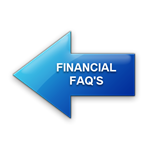What should I do with my 401k account now that I've left my job?
Below are the most common moves folks consider with their 401k after leaving a job.
1. Direct Rollover Into IRA
Rolling old 401k funds into a Traditional IRA is the most common action taken by folks. That’s because it avoids a taxable event (like you have when cashing out or rolling into a Roth IRA). By rolling over these funds versus keeping them at the old company 401k, more investment options are opened for you, since 401k’s usually have limited options…whereas IRA’s have unlimited options. Plus, Traditional IRA’s allow you more flexibility (grab $10,000 penalty-free for 1st-time home purchase) and control over your money (not having to contact your old company for details related to your funds). But be careful of this move if you later plan to do a “Backdoor Roth”, as it may limit your eligibility.
Rolling into a Roth IRA is also an option, but results in a taxable event since you’d be moving from an account with tax deferral, to an account with tax-free distributions (taxes are applied at rollover, versus when distributed). This can be a smart move in a year where you have lower taxable income, so you’re paying taxes at lower rates than you might at a later distribution date. However, you’d want to make sure you have funds to pay the taxes that will be due in the rollover year.
2. Direct Rollover Into New Company 401k
Some prefer this move since it keeps open “Backdoor Roth” and Roth conversion options, or because it keeps money streamlined in one location with future 401k funds. No taxable event is created as long as funds are directly rolled from old company 401k to new company 401k. Check your HR for eligibility.
3. Keep 401k at Previous Employer
You may prefer this option if you like your old company’s 401k plan options. But be careful your old company doesn’t just automatically distribute the funds, creating a taxable event for you. This may be company policy if funds in the account are less than $5,000. You’re best served to look into this possibility before deferring to keeping the funds at your old employer.
4. Cash Out/Distribute Funds
This could be your best option if you have substantial amounts of credit card debt weighing you down. However, be aware that you may get hit with 40-50% in taxes (pending your tax bracket). For example, if you distribute $100,000 in 401k funds before retirement age, you will be liable for early withdrawal penalties, plus IRS and State taxes…which may hit $50,000 in taxes on that original $10,000. So if you pay down $100,000 in credit card and other debt, you may replace it with $50,000 in IRS debt…ouch!
Feel free to contact us if you need help sorting through your options.
© 2024 Peshke Financial Inc., all rights reserved. NMLS #2244878. DRE #02210589. "Making Finances Simple. Changing Lives." is a registered trademark with USPTO. Material contained in this website is for informational purposes only and is not meant to be construed as direct financial advice for your specific situation. It is recommended that you consult with your own advisors for any personalized financial guidance. Since we’re not licensed attorneys, we cannot provide legal advice. As such, any info contained in this website should not be construed as direct legal advice. Individual Licensure (see profiles) - click here. Send Docs Securely - click here. Privacy Policy - click here.


